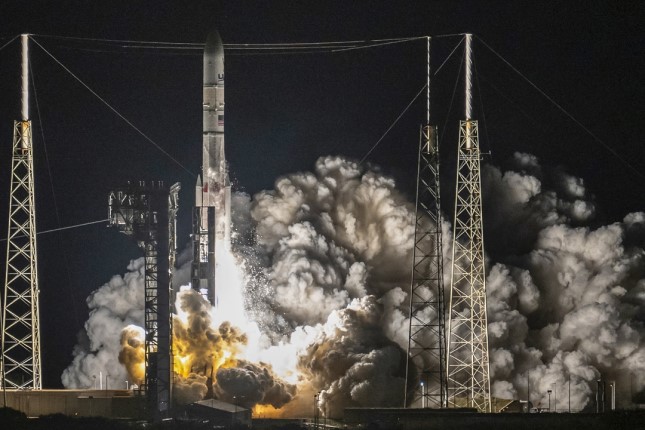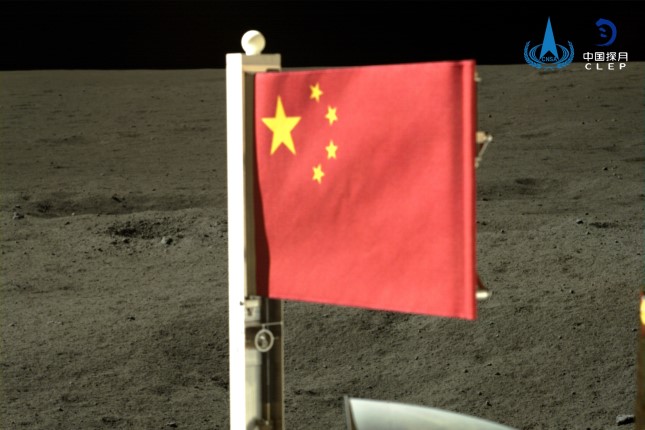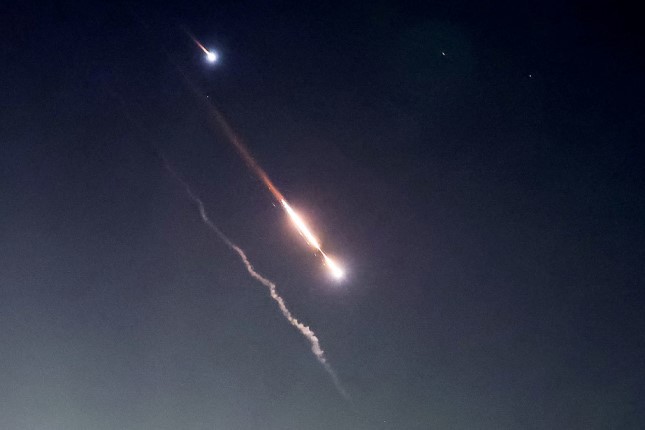The hope for US' first moon landing in more than 50 years has appeared to have crashed, after a US private company's spacecraft reported "critical fuel leak" hours after Monday's launch. Experts said the failed attempt suggests that commercial space sector still faces challenges in breaking through the threshold of deep space exploration, and could impact the US Artemis program, which faces even more obstacles along the way following several delays and launch failures.
The lunar lander, named Peregrine and developed by Pittsburgh-based Astrobotic Technology, encountered abnormalities shortly after a successful lift-off from Florida. Ground research teams found the spacecraft unable to place itself in a position facing the sun, which prevented it from charging its batteries, CNN reported.
Shortly after the spacecraft became fully operational, it soon became apparent that there was "a critical loss of fuel," further diminishing the chances of a scheduled lunar landing on February 23.
This is the first lunar mission undertaken by the US since the Apollo 17 mission in 1972, and also the first time that a private company has taken on this task.
According to media reports, NASA gave a $108 million funding to the private company to develop Peregrine, which aims to fulfill the space agency's vision to reduce the cost of lunar missions by asking the private sector to compete for such contracts.
Song Zhongping, a space analyst and TV commentator, said the US' adoption of a commercial model for deep space exploration is commendable, as it could indicate a more sustainable development path. The encouragement of private capital to enter the aerospace industry has led to the flourishing development of private space ventures in the US in recent years, and has fostered a healthy cycle of competition, cooperation, and technological collaboration among various players in the industry, the expert told the Global Times on Tuesday.
However, some experts pointed out the pickle of this model. As a project is usually co-developed by several ventures, there is a wide gap in the technological capabilities among them with many still insufficient to support such deep-space endeavors, Wang Ya'nan, chief editor of Beijing-based Aerospace Knowledge magazine, told the Global Times on Tuesday.
"Lunar explorations are highly complex. It involves precise trajectory selection, stringent spacecraft design, and the ultimate hurdle of a soft landing on the lunar surface. Peregrine's failed attempt also sounded the alarm that commercial enterprises may still lack technological feasibility to achieve such feats," Wang said.
By far, only four countries have made it to the Moon, namely the Soviet Union, the US, China, and India. Since the 21st century, only Chinese and Indian spacecrafts successfully landed on the lunar surface, while others from Israel, Russia and Japan all crashed.
While the Peregrine mission is considered part of the wider Artemis program with NASA placing several flying experiments onboard, experts said it is unlikely to cause major setbacks for NASA, but could hint at even more obstacles along the way, after experiencing repeated delays of the Space Launch System (SLS) rocket launch and the failed liftoff of SpaceX's Starship rocket.
Song called for the US to abandon its Cold War mentality and open up its arms to cooperate with China, as the latter can offer a variety of assistances to its grand lunar return, for example, crucial scientific data from the previously retrieved lunar soils by the Chang'e-5 mission.
In December 2023, NASA greenlighted and urged scientists it funds to apply for access to China's Chang'e-5 lunar samples in an exception to the Wolf Amendment, which prohibits such bilateral activities with China.
"The Wolf Amendment is originally intended to create barriers for latecomers. However, time has proven that it has not hindered China who has been following its own path through independent innovation. With China's research capabilities constantly advancing, it can be said that China is at least on par with or even partly ahead of the US in certain fields, including lunar exploration," Wang noted.
"Eventually, the clause only ends up a constraint on their own development. In fact, many from the scientific community in the US are questioning the necessity of this clause," the expert said.
Photo: The brand new rocket, United Launch Alliance's (ULA) Vulcan Centaur, lifts off from Space Launch Complex 41d at Cape Canaveral Space Force Station in Cape Canaveral, Florida, on January 8, 2024, for its maiden voyage, carrying Astrobotic's Peregrine Lunar Lander © AFP.
Source: The Global Times.
































